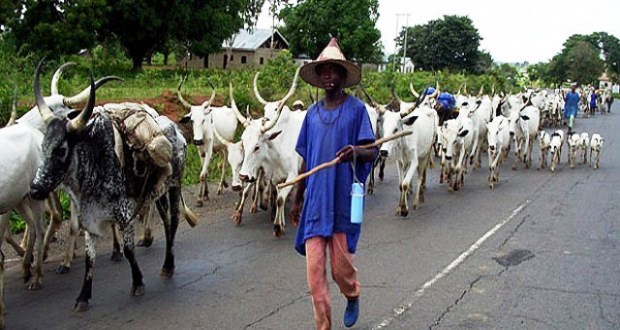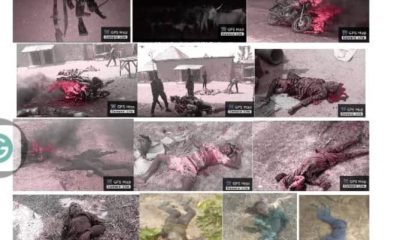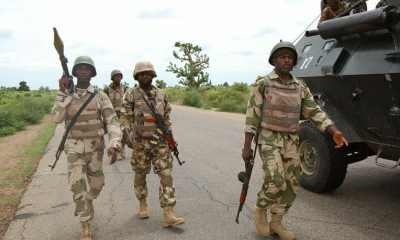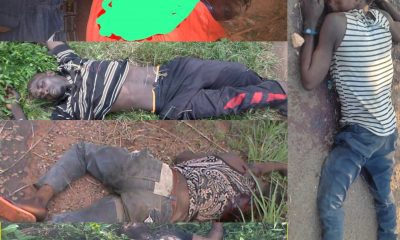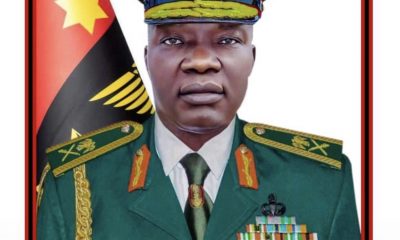Degraded by the Nigerian troops and the Joint Multinational Task Force, Boko Haram has taken to cattle rustling to unleash violence in the northeast and northwest, and lately in the north-central part of the country.
No fewer than 500 persons were murdered weekend, and more than 10 villages razed across the Agatu communities in Benue by cattle rustlers claiming 10,000 head of their cattle were destroyed.
And the signature of these rustlers’ violence—killing women, children, and destroying properties—bears some semblance of Boko Haram’s terror.
Sen. David Mark, who visited the communities ravaged by the rustlers, described the scale of violence he saw as “barbaric, wicked and inhuman”. The only group with such monopoly of violence so far is Boko Haram.
ALSO SEE: Military recover livestock, destroys Boko Haram camp at Alajeri
“Because they have been dispersed, there’s no doubting the fact the terrorists might have mixed with Fulani herdsmen,” Ahmed Alli Dakata, public relations officer of one of the Arewa communities told the National Daily. “But what is sure is that the Boko Haram terrorists are now stealing cows.”
Katsina’s Gov. Aminu Masari was very direct when he established the fusion between the two criminal brands in December.
Apart from their similar modus of operandi, the Boko Haram insurgents and the cattle rustlers, Masari said, use similar arms and ammunition smuggled into the country through animals.
And following security intelligence report last week, Borno’s Gov. Kashim Shettima placed a ban on the sale of cattle in the north-eastern state.
According to him, security agencies have established that most of the cattle being traded at the markets were the direct proceeds of cattle rustling by the insurgents.
“They were sold at prohibitive costs to unsuspecting customers through some unscrupulous middlemen who use underhand ploy to deliberately disguise the transactions as legitimate,” he said through Secretary to the State Government Usman Jidda Shuwa representing him at the inauguration of a new management committee to oversee cattle business in the state.
The north-eastern governor was just following in the footsteps of his eight north=western colleagues who have since reformed their cattle markets so they can better tackle the cattle-rustling extremist groups.
It is obviously an emerging trend the governors have resolved to halt as fast as possible. While the Katsina government has so far spent N45 million on regularising cattle trade, Shettima has given N100 million to the Borno Cattle Traders and Butchers Association as seed capital in the effort to streamline the trade, and fortify it against Boko Haram.
But Benue and other north-central states are yet to take the initiative seriously, relying solely on the efforts of the police and army to tackle the terrorists adopting the Fulani rustlers’ tactics to wreak havoc.
According to the Arewa PRO, the soldiers have been doing a lot in Benue, for instance. “Only that they cannot do it alone,” he told the National Daily. He said the youth, forming the Civilian Joint Task Force has been assisting.
ALSO SEE: Troops nab wanted boko haram terrorist, dies in hospital
They have their limits, however, as a non-state actor. Again, many believe the military approach might not help in the long run. “Fighting war with war is like fighting fire with fire, and can only spark more fire,” Peof, Pat Utomi, political economist tweeted Saturday in response to the spate of violence across the nation.
True, some soft approaches have been taken so far, including setting up of investigative panels to study the situations in Benue and Plateau, then advise the government.
But Dakata, like many others, said since the white papers of those enquiries never get published, the perpetrators of cattle-related violence are never brought to book,
Sen, Mark, however, encouraged the current victims of the Fulani violence—the Agatu—to make the best of the coming public hearing by the Joint Senate Committee on the crisis to bring the matter to public domain and seek redress.

 Football5 days ago
Football5 days ago
 Aviation7 days ago
Aviation7 days ago
 Aviation6 days ago
Aviation6 days ago
 Comments and Issues5 days ago
Comments and Issues5 days ago
 Featured3 days ago
Featured3 days ago
 Business4 days ago
Business4 days ago
 Featured1 week ago
Featured1 week ago
 Education4 days ago
Education4 days ago
